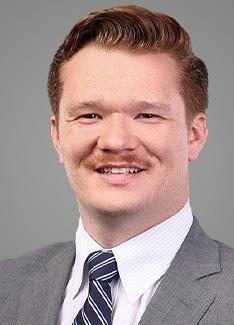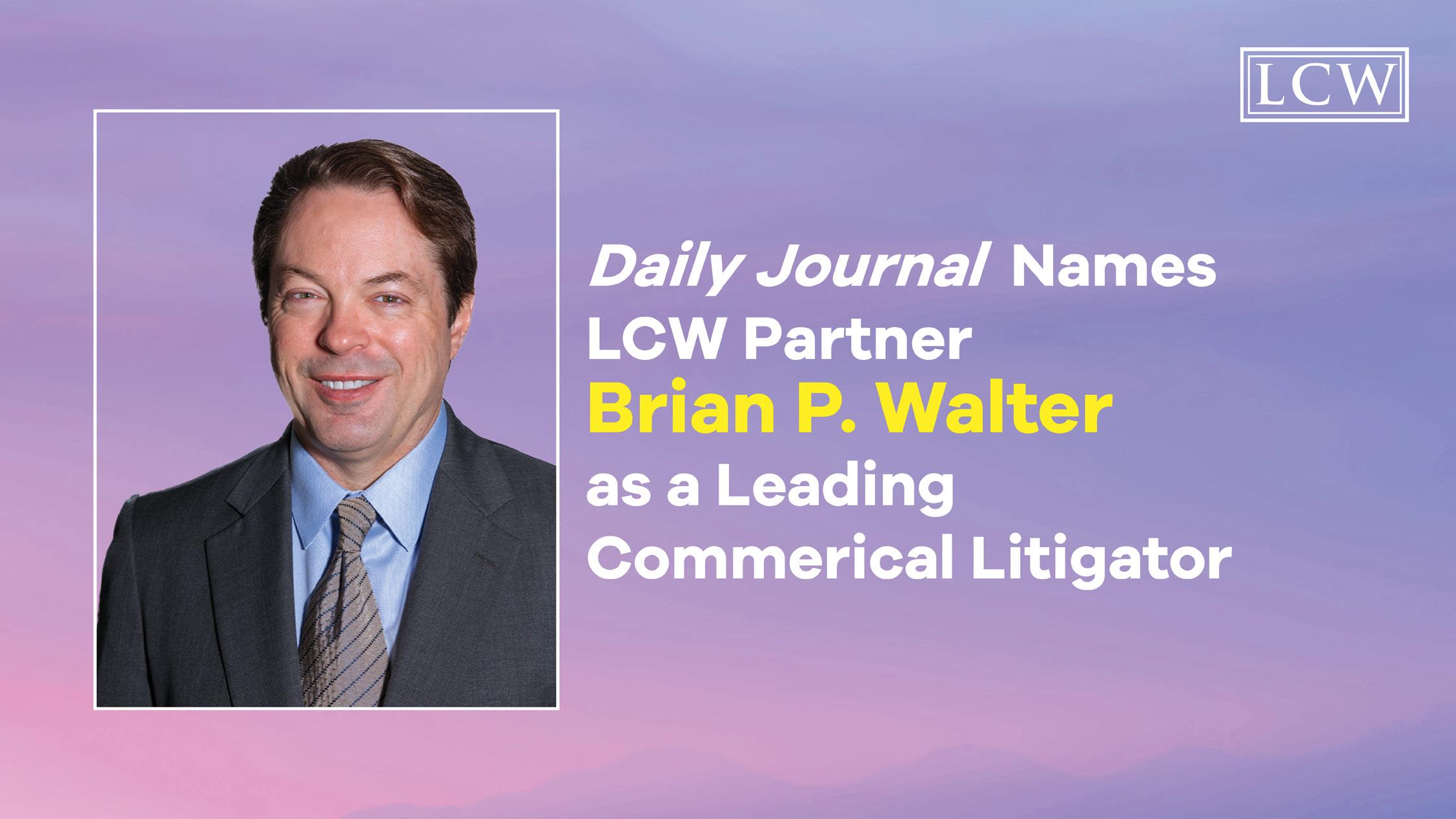






A firefighters’ union claimed that a fire district employer unilaterally changed the status quo regarding the use of Limited Term Firefighters (LTFs). The union claimed that the district’s past practice was to use unrepresented LTFs only for additional staffing for special events and emergencies, but not to otherwise fill firefighter vacancies. The district claimed there was no change in the status quo because it had long used LTFs interchangeably with full time firefighters.
The union filed an unfair practice charge (UPC) with the Public Employment Relations Board (PERB). An administrative law judge (ALJ) heard the case. LCW deployed several arguments. First, LCW argued that the six-month statute of limitations defeated the UPC. The ALJ agreed, but went on to address LCW’s arguments regarding the merits of the case. The ALJ found that the union did not establish a prima facie case for unilateral change. The union’s evidence contradicted the bargaining history that showed that the union had unsuccessfully sought to change the very past practice it was alleging was a unilateral change.
The union did not timely file any exceptions, so the ALJ’s proposed decision in favor of the district became final.
When the Covid-19 pandemic broke out in 2020, a county fire academy quickly implemented procedures that required firefighter trainees to be housed in a hotel for six days a week as a condition of participating in the academy. Trainees had the option of deferring to a later training cycle if they did not want the hotel stay. The trainees were free to spend their time in the hotel as they saw fit before and after the trainings.
Trainees were paid for ten hours of work on each of the six training days. They received straight time for the first 40 hours, and overtime for the remaining 20 hours each week.
A firefighter trainee, who agreed to the hotel stay and underwent training in 2020, sued the county in federal district court, alleging violations of the Fair Labor Standards Act (FLSA). The trainee argued that the time he spent at the hotel was work time even though he was free to do what he pleased. The trainee also argued that he should be entitled to overtime compensation and liquidated damages.
LCW attorneys prevailed in district court and the trainee appealed to the Ninth Circuit Court of Appeals. Through briefing and oral argument, LCW convinced the panel that the time spent in the hotel was not compensable FLSA work time, and that the county did not require the trainees to work “off-the-clock” while staying at the hotel. The Ninth Circuit affirmed the district court’s finding in the county’s favor and dismissed the lawsuit.
The Fair Labor Standards Act (FLSA) exempts many categories of employees from minimum-wage requirements and exempts many more from overtimepay requirements. Common public sector exemptions include those for executive, administrative, or professional employees. Other exemptions are for those employed “in the capacity of outside salesman” and certain highly skilled jobs involving computers.
Employers are responsible for determining whether an employee qualifies for one or more of these exemptions. If an employee challenges an exemption determination in court, the employer has the burden of proving that the exemption applies.
EMD Sales, Inc. (EMD) distributes food products in the Washington, D.C. area. EMD employs sales representatives who manage inventory and take orders at grocery stores. Several sales representatives sued EMD, alleging that the company violated the FLSA by failing to pay them overtime. EMD argued that the sales representatives were outside salesmen and therefore exempt from the FLSA’s overtime-pay requirement.
After a bench trial, a Maryland District Court found EMD liable for overtime pay because EMD did not prove by “clear and convincing evidence” that its sales representatives met the legal criteria for outside sales people. The court ordered EMD to pay overtime wages and liquidated damages. EMD appealed.
On appeal to the U.S. Court of Appeals for the Fourth Circuit, EMD contended that the District Court should have applied the less stringent “preponderance of the evidence” standard. The Fourth Circuit disagreed and affirmed the judgment of the district court. EMD appealed to the U.S. Supreme Court (USSC).
The USSC reversed and held that the preponderance of the evidence standard applies to determining whether an employee is exempt from the FLSA minimumwage and overtime-pay provisions. The Fourth Circuit was the only circuit that used the higher clear and convincing standard. The USSC reasoned that since civil litigation generally uses the preponderance standard, and the FLSA did not specify that the higher standard applied, the default preponderance standard applies to these FLSA determinations.
E.M.D. Sales v. Carrera, 220 L.Ed 2d 309 (2025).
Train dispatchers sued their employer, Bombardier Mass Transit Corporation, for unpaid wages. They alleged they were entitled to overtime wages and wage statement penalties for on-call time.
When a California employer fails to pay wages to an employee, the employee may either: 1) file an original civil action directly in court, or 2) seek administrative relief with the California Labor Commissioner under the Berman statutes (Labor Code section 98 and following.)
If the employee elects for administrative relief, the Labor Commissioner may: accept the matter and conduct a Berman hearing; prosecute a civil action for collection of wages; or take no further action on the complaint.
The train dispatchers first decided to seek relief from the Labor Commissioner. The Labor Commissioner denied their claim.
The train dispatchers then filed a request for de novo hearing in the superior court. The train dispatchers prevailed in the superior court, receiving over $140,000 in back wages and penalties. They then moved for attorneys’ fees and costs, which the trial court granted in the amount of $200,000.
On appeal, Bombardier accepted its liability for the more than $140,000 in back wages and penalties. Bombardier’s sole argument on appeal was that Berman hearing process described in Labor Code section 98.2(c) is the exclusive statute authorizing an award of attorneys’ fees and costs in a superior court appeal from the Labor Commissioner’s Berman order. Based on this logic, Bombardier concluded that the train dispatchers were not entitled to recover attorneys’ fees and costs because Section 98.2(c) only authorizes an award against unsuccessful appellants in a de novo trial in superior court.
The Court of Appeal disagreed with Bombardier’s argument, and upheld the trial court’s decision. The Court emphasized that the Berman procedure penalizes only those who lose a de novo superior court action. The Court noted that: 1) those who win superior court actions for unpaid wages – like the train dispatchers -- are generally entitled to an award of reasonable fees and costs under Labor Code sections 218.5, 226, and 1194; and 2) nothing in Section 98.2 suggested that the Legislature intended to make this remedy unavailable to employees who used the Berman hearing process. Thus, the Court affirmed the order awarding $200,000 in attorneys’ fees and costs to the train dispatchers.
Villalva v. Bombardier Mass Transit Corp., 2025 Cal.App. LEXIS 19 (1/19/25.)


Bryant S. Forster is an Associate in the Los Angeles office of Liebert Cassidy Whitmore, where he provides counsel on labor and employment law matters and represents clients in litigation.

Navigating Developments in Wage and Hour Laws in 2025
March 4, 2025
10:00 a.m. - 11:00 a.m.
Class & Comp: The Foundation of Informed Labor Negotiations
March 11, 2025
10:00 a.m. - 11:00 a.m.
What Labor Code Sections Apply to the Public Sector?
June 9, 2025
10:00 a.m. - 11:00 a.m.
2026 Public Agency Legislative Roundup
November 12, 2025
10:00 a.m. - 11:00 a.m.
Labor Relations Legislative Update: What Your Agency Needs to Know about New Legal Obligations for 2026
December 11, 2025
10:00 a.m. - 11:00 a.m. Visit the above links for more information.
Members of Liebert Cassidy Whitmore’s employment relations consortiums may speak directly to an LCW attorney free of charge regarding questions that are not related to ongoing legal matters that LCW is handling for the agency, or that do not require in-depth research, document review, or written opinions. Consortium call questions run the gamut of topics, from leaves of absence to employment applications, disciplinary concerns and more. This feature describes an interesting consortium call and how the question was answered. We will protect the confidentiality of client communications with LCW attorneys by changing or omitting details.
A job applicant got arrested, but has not yet been convicted. Can the agency ask the applicant any information about the incident?
No. California Labor Code section 432.7 specifically prohibits an employer from asking an applicant (other than a peace officer applicant) to disclose information concerning an arrest or detention that did not result in conviction, or information concerning a referral to, and participation in, any pre-trial or post-trial diversion program, or information concerning any conviction that has been expunged or judicially sealed.

For



Whether you are looking to impress your colleagues or just want to learn more about the law, LCW has your back! Use and share these fun legal facts about various topics in labor and employment law.
• Employers with five or more employees must provide up to five days of Reproductive Loss Leave to an employee who has worked for the employer for at least 30 days and who has had a reproductive loss event. Reproductive Loss Events include “the final day of a failed adoption, failed surrogacy, miscarriage, stillbirth, or an unsuccessful assisted reproduction. (Government Code section 12945.6.)
• Employers need not provide employees written notice of their leave and accommodation rights as survivors of violence or as family members of victims under Government Code section 12945.8 (AB2499), until July 1, 2025. The California Civil Rights Department (CDR) has until that date to post the updated notice on its website. The notice is to be entitled “Survivors of Violence and Family Members of Victims Right to Leave and Accommodations”, and employers can download it to provide to employees.
• If an employee can no longer perform the essential functions of their own position even with accommodation, the Fair Employment and Housing Act regulations require the employer to consider whether the employee is qualified for assignment to any suitable vacant positions. (2 Cal.Code Regs. section 11068(d).)

The severe wildfires and straight-line winds have devastated entire communities in the County of Los Angeles and other parts of southern California. Employers that would like to provide financial relief to employees impacted by the wildfires have the option to provide such benefit on a non-taxable basis under Internal Revenue Code section 139. Section 139 allows employers to provide “qualified disaster relief payments” to employees and other individuals on a tax-free basis. Qualified disaster relief payments include any amount paid to or for the benefit of an individual to reimburse or pay for reasonable and necessary personal, family, living, or funeral expenses incurred as a result of a qualified disaster. It also includes reimbursements or payments for reasonable and necessary expenses incurred for the repayment or rehabilitation of a personal residence or its contents that need to be replaced due to a qualified disaster. Federal, State, and local government agencies may also provide qualified disaster relief payments in order to promote general welfare for individuals in connection with a qualified disaster.
A “qualified disaster” includes a federally declared disaster. On January 8, 2025, President Biden declared that a major disaster exists in the State of California and ordered Federal aid. He amended the disaster declaration on January 13, 2025 to provide further federal assistance. Based on these declarations, the fires meet the criteria to be a “qualified disaster” since the President determined it to be a federally declared disaster that warrants assistance by the federal government.
Any public agency employers that provide qualified disaster relief payments to any of its employees or other
individuals in need of this assistance due to the California fires can exclude such payments from the gross income of the employee or individual. As a reminder, any qualified disaster relief payments are subject to meet and confer for any represented employee groups.
During a Presidentially-declared major disaster, such as the California wildfires, it is expected that employees adversely impacted by the disaster will need to take time off. While many employers are more familiar with employee leave sharing banks for medical emergencies, employers also have the option to establish employee leave sharing banks for major disasters. Such banks allow employees to donate their accrued and unused leave hours to other employees who have been impacted by a major disaster and need time off from work related to the disaster. If properly structured, the leave that one employee (the donor) donates to an employer-sponsored leave sharing bank for major disasters will be non-taxable to the donor employee, which is a positive incentive for employees who want to help others but not be taxed on their donations. The amounts paid to recipient employees are considered wages.
The key requirements for setting up a valid major disaster leave sharing plan are:
• The employer must have a written plan for its major disaster leave sharing program.
• Recipient employees must be adversely affected by a Presidentially-declared major disaster. The California fires have been declared a major disaster by President Biden. If an employee or their family member suffers
a severe hardship caused by the disaster that requires the employee to be absent from work, the IRS will consider that employee as being adversely affected by a major disaster.
• Donor employees cannot designate or earmark their donated hours to a specific employee.
• Donor employees cannot donate more accrued leave hours than they would normally accrue for the year.
• The employer must make a reasonable determination, based on need, as to how much leave each recipient may receive.
• Recipient employees should be compensated when using the donated paid leave at their normal rate of pay and must use the leave for purposes related to the disaster.
• The plan adopts a reasonable limit, based on the severity of the disaster, on the period of time after the major disaster occurs during which a donor may donate leave in the leave bank (donation period).
• Any donated leave that is not used by the end of the donation period must be returned within a reasonable period to donors. The amount of leave returned to each donor must be proportional to the amount of leave donated by the donor compared to the total amount of leave donated for the major disaster.
• Recipient employees cannot convert the donated leave to cash.
• Please note that such plans are subject to meet and confer for represented employees.
See the IRS Publication 15-A, Employer’s Supplemental Tax Guide and Notice 2006-59, 2006-28 I.R.B. 60 for more information.
On December 23, 2024, President Biden signed the Employer Reporting Improvement Act (H.R. 3801) into law. Applicable Large Employers should be aware of the following three changes related to the Affordable Care Act’s Employer Shared Responsibility Payment (ESRP).
First, the Act codifies the IRS’s practice of allowing employers to substitute an individual’s date of birth for the individual’s Tax Identification Number (TIN) on a Form 1095-C when the TIN is unavailable. Applicable Large Employers (ALEs) (employers with 50 or more full-time and full-time equivalent employees under the Affordable Care Act’s calculation) are required to prepare and file written statements describing the health insurance, if any, that the ALE offers to eligible employees. An ALE can meet this requirement by completing and filing a Form 1095-C for each eligible employee. In Parts I and III of Form 1095-C, employers have to input the SSN or other TIN for each employee and individual covered by the employer’s health plan. There is also an option to input the individual’s date of birth on the Form 1095-C. The Act formally approves the practice of allowing a date of birth to substitute for a SSN or other TIN on the Form 1095-C.
Second, the Act extends the time an employer has to respond to a Letter 226-J from 30 days to 90 days. A Letter 226-J is the initial letter the IRS sends ALEs to notify them that they may have violated the ESRP. It is important for any ALE that receives a Letter 226-J to timely respond to the IRS. Previously, the response time was a quick 30 days unless the IRS approved a request for an extension. In that short timeframe, ALEs had to gather information to respond to the IRS’s proposed assessment that the ALE had either not offered substantially all full-time employees minimum essential coverage or had offered coverage that was not affordable or did not provide minimum value. The Act now gives employers more time, 90 days, to respond to a Letter 226-J.
Third, the Act implements a six-year statute of limitations for the IRS to collect penalties under the ESRP. The sixyear period begins on the due date for filing a Form 1095-
C, or, if later, the date the Form 1095-C was actually filed. Previously, there was no statute of limitations for the IRS to assess such penalties.
Question: What does it mean when an agency’s policy providing leave under the Family and Medical Leave Act (FMLA) and California Family Rights Act (CFRA) states “an employee may elect and the agency will require an employee to use paid accrued leaves”?
Answer: When an employee uses family and medical leave, the leave is unpaid under the FMLA and/or CFRA. Any policy language that says words to the effect of “an employee may elect and the agency will require an employee to use paid accrued leaves…” is likely based on the FMLA and CFRA regulations, which allow either: (1) an employee to elect to use their accrued paid leaves to cover their otherwise unpaid FMLA/CFRA leave; or (2) an employer to require an employee use their accrued paid leaves to cover the otherwise unpaid FMLA/ CFRA leave. (29 C.F.R. section 825.207(a); 2 C.C.R. 11092(b)(1).) The regulations allow these two different pathways – one from the employee’s election and one from the employer’s requirement – to substitute accrued paid leaves during otherwise unpaid FMLA/CFRA leave.
Each month, LCW presents a monthly benefits timeline of best practices.
• See LCW’s Special Bulletin regarding an optional exception where employers may skip furnishing Form 1095-C and the complexities with using the exception. If not using the exception, furnish Form 1095-C to full-time employees by Monday, March 3, 2025. Retain a record that your agency furnished the forms to employees and copies of such forms.
• Prepare for the Monday, March 31, 2025 deadline to e-file Forms 1094-C and 1095-C. Retain a record of the forms and proof of the e-filing.
• If your agency would like an automatic 30-day extension to file Forms 1094-C and 1095-C, the agency must submit Form 8809 on or before the due date of the returns.


Liebert Cassidy Whitmore’s Labor Relations Practice Group offers an array of services to help your agency. These services include:
1. Being in the role of Chief Negotiator at your labor negotiations tables. Services include:
Interfacing with elected officials
Meeting with appropriate department representatives
Preparation of proposals and compensation surveys
Acting as the Chief spokesperson at the collective bargaining table
2. Trusted legal advisors on labor issues including:
Unfair practice charges
Job actions (including strike preparation)
Wage and hour
Retirement and leaves issues that are addressed in your Memoranda of Understanding (MOU) or Collective Bargaining Agreements (CBA)
Any legal issue under California collective bargaining laws applicable to the public sector
3. Reviewing and offering recommendations for your MOUs or CBAs in advance of an upcoming labor negotiation.
4. Handling Unfair Practice Charge filings at the Public Employment Relations Board, including any hearings that may be set.
5. Training your staff on how to be more successful on the numerous issues raised by your labor relationships. Review our trainings here: https://www.lcwlegal.com/labor-relations-certification-program/
If you have any question(s) about whether LCW can help you with your labor relations, please reach out to the Chair of LCW’s Labor Relations Practice Group, Peter Brown at pbrown@lcwlegal.com.

By: Michael Youril
This blog was originally authored in August 2019 but has been reviewed and updated for January 2025.
Applying the different California Public Employees’ Retirement System (CalPERS) rules related to Temporary Upgrade Pay, out-of-class appointments, and non-reportable extra-duty pays can be unnerving. For classic employees, compensation for appointments meeting the definition of Temporary Upgrade Pay are reportable to CalPERS and is included in pension benefits. For out-of-class appointments, the Government Code establishes a 960-hour per fiscal year limit, regardless of whether the employee is a classic or new member. Some compensation is reportable as Temporary Upgrade Pay and the hours are reportable as an out-of-class appointment. Other appointments might meet the definition of Temporary Upgrade Pay but do not meet the definition of an out-of-class appointment. And, whether the employee is a new member subject to the California Public Employees’ Pension Reform
Act (PEPRA) or a classic member might change the answer.
As discussed in more detail below, for classic members, where an appointment meets the definition of Temporary Upgrade Pay, but not out-of-class appointments, the compensation is reportable to CalPERS and included in the employee’s pension benefits. However, the hours are not reportable for the purposes of the 960-hour limit on out-of-class appointments. For a classic member, where an appointment meets the definition for Temporary Upgrade Pay and out-of-class appointments, the compensation is reported to CalPERS and included in pension benefits, and the hours are reported to CalPERS for the purposes of tracking the 960hour limit for out-of-class appointments. For new members, compensation for Temporary Upgrade Pay is not reportable to CalPERS for the purpose of inclusion in pension benefits, but the hours may be reported to CalPERS for the purpose of tracking the
960-hour limit if the appointment meets the definition of an out-of-class appointment.
Few items of special compensation reportable to CalPERS have caused as much confusion as Temporary Upgrade Pay. CalPERS even had difficulty determining whether Temporary Upgrade Pay would be reportable for CalPERS new members after PEPRA was enacted. Initially, CalPERS indicated in a circular letter that Temporary Upgrade Pay would not be reportable for new members who were subject to PEPRA. CalPERS later reversed course and indicated that Temporary Upgrade Pay would be reportable for new members. Finally, after a brief standoff with then-Governor Brown, CalPERS excluded Temporary Upgrade Pay from reportable compensation for new members under its final regulation.
Temporary Upgrade Pay is an item of “special compensation” that is reported to CalPERS for the purpose of inclusion in CalPERS pension benefits for classic members. Under the applicable regulation, Temporary Upgrade Pay is defined as follows:
Compensation to employees who are required by their employer or governing board or body to work in an upgraded position/classification of limited duration.
In a 2014 Circular Letter, CalPERS noted that many agencies were incorrectly reporting certain assignments as Temporary Upgrade Pay. Specifically, CalPERS takes the position that when an individual maintains the duties of their current position and takes on some or all of the duties of an upgraded position, the compensation for taking on the additional duties is non-reportable overtime.
For example, many agencies have “out-of-class” or “acting” pay in their MOUs that provide an employee with additional compensation for taking on a portion of the duties of an upgraded classification. In some cases, multiple employees will split the duties of a higher position and receive additional compensation. Under CalPERS’ interpretation, since the individual retains the duties of their current position, the compensation is not reportable to CalPERS for new or classic members.
To complicate matters further, on January 1, 2018, Government Code section 20480 went into effect. This new law places limits on certain out-of-class
appointments, and provides for penalties on out-ofclass appointments that exceed 960 hours in a fiscal year. As with Temporary Upgrade Pay, an out-ofclass appointment under the Government Code has a specific definition. An “out-of-class appointment” is “an appointment of an employee to an upgraded position or higher classification by the employer or governing board or body in a vacant position for a limited duration.” A “vacant position” is defined as “a position that is vacant during recruitment for a permanent appointment.” The definition of “vacant position” excludes a “position that is temporarily available due to another employee’s leave of absence.” If the appointment meets the definition of an outof-class appointment, the hours must be reported to CalPERS, but the compensation is only reportable if the appointment meets the definition of Temporary Upgrade Pay and only if the employee is a classic member.
It would have been convenient for the definition of Temporary Upgrade Pay under the regulations and out-of-class appointments under the Government Code to have the same definition, but that would be too easy. As the definitions above illustrate, an appointment might meet the definition of Temporary Upgrade Pay without meeting the definition of an out-of-class appointment. For example, if a CalPERS classic employee is placed in an upgraded position while the permanent employee is on an extended leave of absence, assuming the technical requirements in the regulation are met as they relate to all items of special compensation, the compensation would be reportable as Temporary Upgrade Pay. However, the appointment would be expressly excluded from the definition of an out-of-class appointment and the hours would not have to be reported in my CalPERS for the purposes of tracking the 960-hour limit. Similarly, if an individual serves in an upgraded position, but the agency is not recruiting to fill the position, the additional compensation may be reported as Temporary Upgrade Pay, but does not meet the definition of an out-of-class appointment.
With the mix of overlapping and divergent definitions for Temporary Upgrade Pay, out-of-class assignments, and non-reportable extra-duty pays, it is important to apply each definition separately to the appointment and compensation when reporting compensation as Temporary Upgrade Pay or reporting the hours for out-of-class appointments. Agencies should also audit
any out-of-class, upgrade pays, interim pays, acting pays and extra-duty pays to determine whether these pays are reportable as special compensation, and when they may meet the definition of out-of-class appointment for the purposes of tracking the 960-hour limit.


